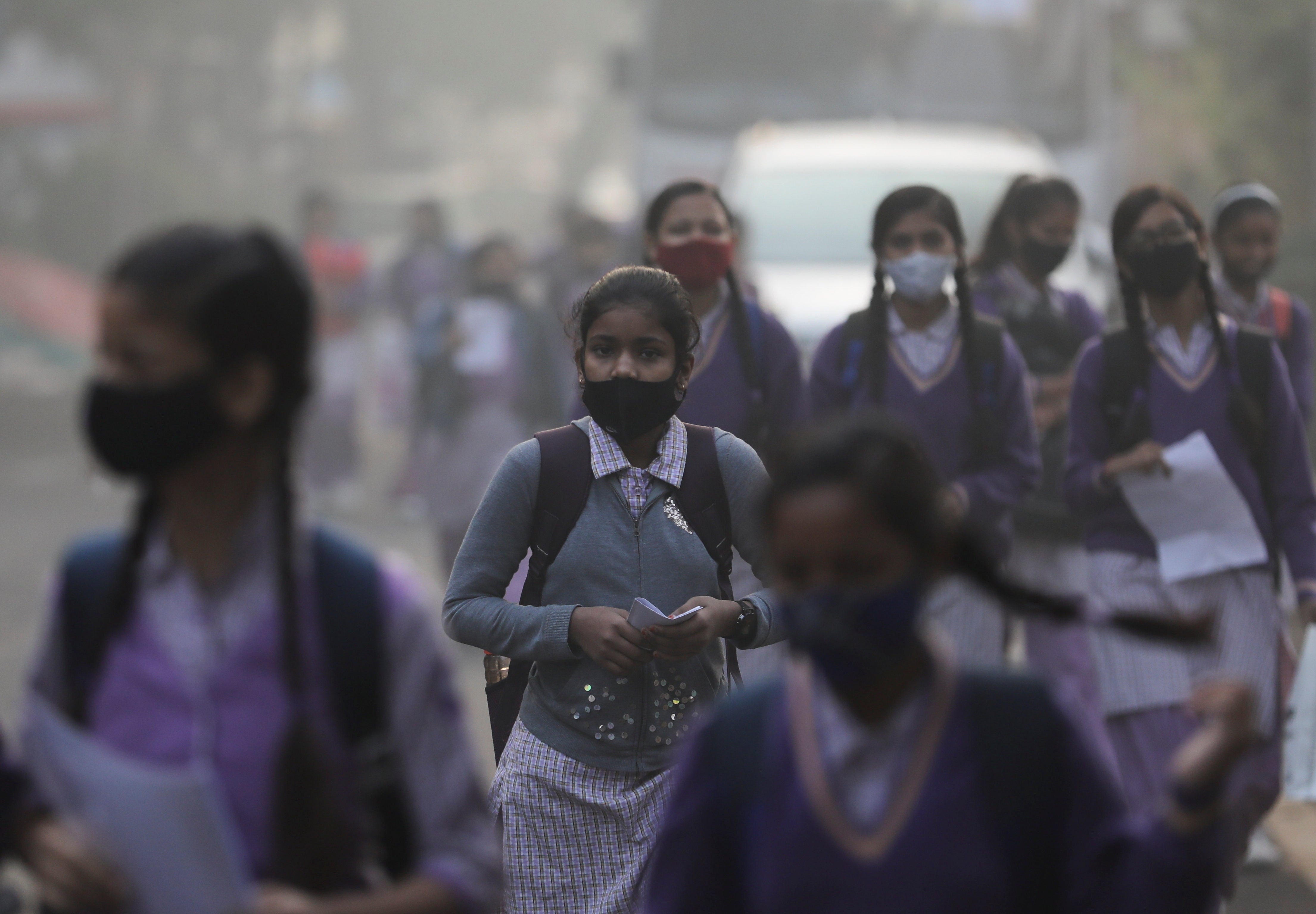Air pollution shortens lives of Delhi residents by around 11.9 years
Report finds 67.4 per cent of Indians live in areas that exceed country’s own national air quality standard

Air pollution shortens the average life expectancy of Delhi’s residents by approximately 11.9 years, finds a new study that sheds light on the dire consequences of breathing in the city-state that has often ranked as the world’s worst polluted.
The Air Quality Life Index (AQLI) report for 2023, released on Tuesday, said all of India’s 1.3 billion people live in areas where the annual average particulate pollution level exceeds the 5µg/m3 limit set by the World Health Organisation (WHO).
Based on particulate matter data from 2021, the report focused on measuring the influence of particulate pollution on life expectancy.
The findings of the report revealed that the annual average PM2.5 level in 2021 in Delhi stood at 126.5µg/m³, surpassing the 5µg/m³ WHO limit more than 25 times.
Comparatively, in 2020, the recorded PM2.5 level was slightly lower at 107µg/m³. This level of pollution has dire consequences on the health of the national capital’s 18 million residents, taking away approximately 11.9 years from their lives.
PM2.5, or the smallest particulate matter, is one of the most dangerous pollutants and is responsible for a number of diseases. The report stated that the threats posed by PM2.5 on human health in India overshadow risks of cardiovascular diseases and child and maternal malnutrition, becoming the biggest health threat.
It stated that while particulate pollution takes away 5.3 years of life from the average Indian, cardiovascular diseases reduce life expectancy by around 4.5 years, while child and maternal malnutrition shaves off 1.8 years.
The report noted that India grapples with the heaviest health burden globally due to the vast number of individuals affected by elevated particulate matter levels, something several reports on air quality have emphasised on in the past.
Among south Asian nations, India grapples with a 9.5 per cent rise in PM2.5 levels from 2013-21, while neighbours Pakistan and Bangladesh witnessed 8.8 per cent and 12.4 per cent increases over the same period.
In terms of regional impact, the northern plains – encompassing states Bihar, Delhi, Haryana, Punjab, Uttar Pradesh and West Bengal – have emerged as the country’s most polluted region.
Residents in this region could face a reduction of approximately eight years in life expectancy if current pollution levels persist.
It also found that 67.4 per cent of the country’s population lives in areas that exceed the country’s own national air quality standard of 40µg/m3.
The report delves into potential positive outcomes if PM2.5 levels were reduced. For instance, if Delhi's PM2.5 level were lowered to meet WHO limits as an annual average, residents could potentially gain 11.9 years in life expectancy.
Even a reduction to the national standard of 40µg/m³, well below the WHO limits, could result in a gain of 8.5 years in life expectancy for Delhi residents.
The broader implications for India are equally significant. A reduction of PM2.5 levels to meet the WHO guideline could increase life expectancy by 5.3 years, while adhering to the national standard of 40 µg/m³ could lead to a gain of 1.8 years.
The authors of the study said the Indian government's efforts to combat air pollution through initiatives like the National Clean Air Programme, which aims for a 40 per cent reduction in particulate pollution by 2026 in 131 non-attainment cities, could also lead to substantial improvements.
Achieving this reduction could translate to an increase in the national average life expectancy by 7.9 months and a notable gain of 4.4 years for residents of Delhi.
Join our commenting forum
Join thought-provoking conversations, follow other Independent readers and see their replies
Comments


Bookmark popover
Removed from bookmarks